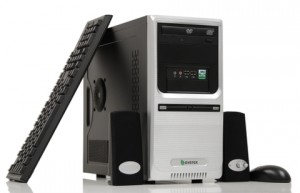Is Linux the “poor-man’s” OS?

Even as Microsoft strives to expand it’s operating system exposure in foreign markets, Linux gets a boost at home from the nation’s largest retailer, Wal-Mart. Two weeks ago the king of discount shopping introduced a $200 PC. Now, the initial production of 10,000 units has sold out, which has some wondering if Linux has found the niche market it needs to become more mainstream.
The Everex TC2502 gPC ships with a customized distribution of Ubuntu 7.10, and very meager system specs. With an array of open source and Web based software the computer easily handles basic tasks, like Web browsing, email, word and spreadsheet documents, and instant messaging, plus more complicated tasks, such as photo editing and DVD burning.
Because of the low price point, and low system specs, the likely buyers for the gPC are those in the lower class, which may very well play to Linux’s advantage, as many lower class buyers may not have owned a computer before. This introduction to Linux as a first computer will help build brand loyalty.
Yet, I can’t help but wonder if this kind of low-end machine will give Linux a bad name. Will Linux be seen as the “poor man’s” operating system? As Ginsu to Microsoft’s Wüsthof, or Yugo to Apple’s Bugatti? The standard model for Linux users has long been the power user, the educated user, the geek, and the convert. Is there room in the often snarky and sardonic world of the Linux cult for the (sometimes less-than) average man? Or will these low end users end up dreaming of the day they can afford a “real” computer, running a “real” operating system?
I imagine it will be a few years before we begin to see what effect these low-end machines are having on the market and on Linux. Only time will tell if this niche market is what Linux needs to become a major player in the computer market. Or, if it’ll create a new view of Linux as the cheap date.


